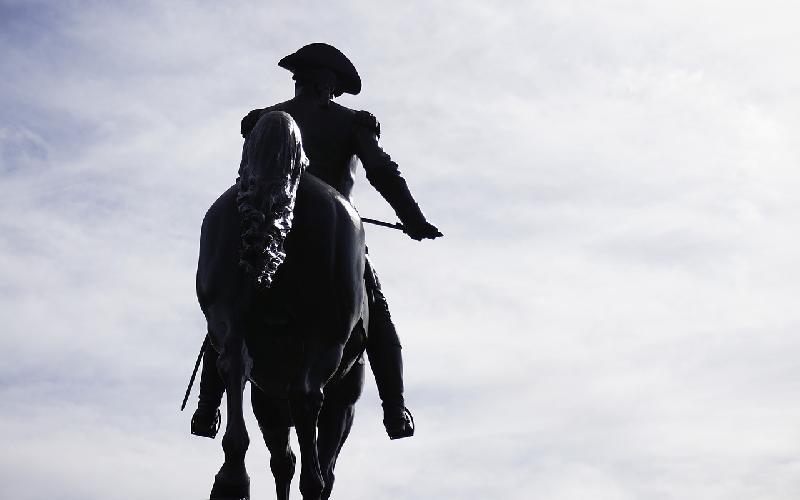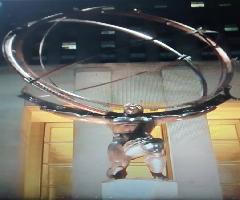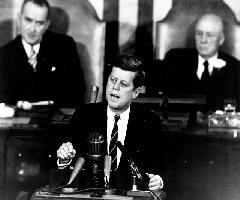The senate - do we really need it and its filibustering ways. In light of healthcare reform, Don't Ask, Don't Tell and the battle over 9-11 first responders, the answer seems obvious. But you're definitely not the first majority to question why the republic must stagnate as the public boils well beyond 98 degrees for change.
Robert Caro's, The Years of Lyndon Johnson : Master of the Senate, offers a dissertation starting with the concerns first raised by Thomas Jefferson. Over tea, Washington slid Jefferson some milk to make his point. It cools the tea and the senate will do the
same to the nation, he said. It's foresight soon revealed itself on the world stage.The founders understood the tyranny of kings and a system of check and balances demonstrates that but there was another form of oppression that concerned them as much. The tyranny of the people or the majority could be just as destructive. The French Revolution showed this then, and majority backlashes such as the one in Rwanda speaks for itself today.
The first test came as Thomas Jefferson himself wanted to impeach Justice Samuel Chase on the grounds of political disagreement. The majority in the house stood with their president and the Republican wave sweeping the country but the senate stepped back and ten Republican Senators were able see the consequences such a precedent would have had.
The Senates greatest age coincided with the compromises that put off our inevitable civil war. With unforgettable oratory, men such as Henry Clay and John C. Calhoun rose to the aspirations of the founding fathers. Delayed, the young nation survived something it might not have been able to in 1820 or even 1850.
Unfortunately, the senate went from a platform that the world envied to the petty and ineffective body that we are familiar with today. The filibuster would kill The League of Nation, and as the seeds were again sewn for another monumental struggle, isolationist senators killed FDR's attempts to stand up to the axis or retool for war.
Domestically, Civil Rights legislation was held hostage to a Southern Filibuster for 75 years. Passed in the House throughout the 20th Century, 22 Southern Senators utilized the body's long windedness by using a refrain we heard in our healthcare debate. State's rights were supreme and federal control would lead to tyranny.
Nonetheless, the senate managed to shine on two crucial occasions. FDR's court packing plan of 1937 was an attempt to reverse New Deal Legislation that had been ruled unconstitutional. Putting aside the merits of the FDR's plans, more power would have been concentrated in the executive branch - thus disrupting our system of checks and balances.
The senate came through again in 1951. Caro describes the scene in the words of William Manchester. "A senior officer in full uniform, contemptuously defying a constitutional commander in chief and undertaking to force an alteration in the highest decision of civil government," he said in describing Macarthur's exit from his farewell address.
Jets flying over head, 250,000 people in pandemonium, journalist George Reedy feared for the very republic. "I'll never forget watching him go up Pennsylvania Avenue - had he said, 'let's take it,' and had he started a charge toward the White House, the adoring crowds would have followed him."
Congressional Correspondent William S. White had a similar sentiment. "I have never feared more for the institutions of my country. I felt if the speech had gone on much longer there might have been
a march on the White House."Furthermore, Macarthur's military strategy posed an even greater threat, and with the nation's overwhelming support, an early attempt to challenge by Freshman Senator Robert Kerr showed the charged atmosphere. "You could just feel the hostility in the gallery and they hated Kerr at that moment," George Reedy recalled.
Senator Richard Russell of Georgia was the one hope of slowing this runaway train and the sentiment sweeping the country. Despite being the archenemy of Civil Rights Legislation, he was probably the most respected U.S. Senator.
At a time when Southern Senators freely slung the n-word around, no one was more knowledgeable of the senate's workings and his impassioned, dignified approach couldn't be ignored - even by the northern liberals who hated him.
As for the issues at hand, says Caro, "he understood the terrible dangers of the policies of Macarthur the global strategist, and he was aware of the danger inherent in Macarthur's challenge to the president's authority."
He also knew the senate provided the forum in which all sides of this complex issue could be viewed. In turn, Americans could fully gauge the situation.
First, he kept the cameras out so emotion could not be swayed by Macarthur's oratory skills, but he also made sure that as much information as possible made it to the American people. As for his tone, he afforded the general the respect he deserved and the American people expected.
On display, Macarthur made his position clear. He proposed that Manchuria be bombed, China blockaded and Chang allowed to invade the mainland from Formosa . The Truman administration's attempt to make war piecemeal would lead to a broader conflict as appeasement always did, Caro paraphrased.
In response, Russell's intent was to demonstrate that Macarthur was a theater commander making decisions that required a global understanding. What if Chang's forces were wiped out - would US troops have to defend Formosa ? What then if Russia invaded Japan or what if seeing its allies defeated, they enter the fray - thus widening the war and possibly provoking nuclear attack.
Asked point blank, How do you propose to defend America against that war?
Macarthur almost made the case against himself. "That doesn't happen to be my responsibility, Senator," he said. "My responsibilities are in the pacific." The tide had turned and the virulent General turned out to be as lactose intolerant as the founder intended.
Regardless, you're perfectly justified to hate the filibuster but at least a little solace can be taken in the restraint it provides. Hopefully, the future brings the type of people that the convention had in mind when the challenge has been equaled rather than those that have sunk with the sugar.
Check out : Checkout my kid Bloggers from Mt Kisco Childcare http://mkcccpresskivab.blogspot.com/ AND PLEASE CLICK LINK AFTER BLOG ENTRY
My Article originally published at : westchesterguardian.com
westchesterguardian.com/2_2_12/wg_2_2_12_fin.pdf



